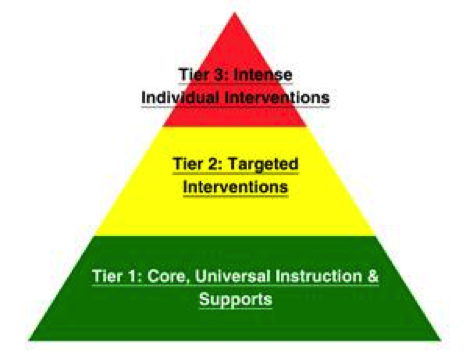Role of the school counselor
-
Help improve school work (organization, completing tasks/assignments, and study skills)
-
Respond to individual student/parent needs/questions
-
Core Counseling Curriculum taught to students using personal/social, educational, college and career goals.
-
Facilitate parent/teacher/student conferences
-
Coordinate Intervention Team Meetings for students who are struggling academically, personally, and/or socially.
-
Coordinate and facilitate Student Study Team (SST) Meetings
-
Student support liaison and case carrier for students with Section 504 Accommodation Plans
- Implement a Multi-Tiered System of Support (MTSS), which ensures all students have access to a comprehensive counseling program
Tier 1: Core Curriculum- Classroom lessons (all students)
Tier 2: Intentional Guidance- Small group counseling (some students)
Tier 3: Individual Interventions- individual counseling and outside referrals (few students)
SUpports at south lake
(All activities and clubs follow the IUSD Non-Discrimination Policy; BP 5145.3)
- Tutorial: Monday, Wednesday, Thursday, Friday
- South Lake's tutorial program allows for students to receive extra assistance, make up tests, and work on enrichment projects and class assignments.
- Communicate with teachers directly by email
- Elective courses
- Study Skills (trimester-long course)
- Reading Lab
- Math Lab
- Guided Studies
- Directed Studies
STudy Tips
-
Check your gr ades at least twice a week on Parent Portal
-
Check your assignments daily on Canvas
-
Use your South Lake planner (keep track of homework, project deadlines, upcoming tests, events, sports practice, etc.)
-
Set a "study space"
-
Have all your material in front of you: lecture notes, course textbooks, study guides and any other relevant material.
-
-
Don’t try to do all your studying the night before the test. Instead space out your studying, review class materials several times a week, focusing on one topic at a time
-
Take short breaks frequently. Your memory retains information that you study at the beginning and the end better than what you study in the middle.
-
Take short breaks frequently. Your memory retains information that you study at the beginning and the end better than what you study in the middle.
-
Review/re-write notes
-
Make flashcards on Quizlet
-
Create a Kahoot! (interactive game-based learning program)
- Use Khan Acacdemy (expert created content and resources for every subject)
-
Ask a friend/parent to quiz you
-
If you choose to study in a group, only study with others who are serious about the test.
-
Re-do homework problems as practice
-
Organize your backpack weekly
-
Pack your backpack (check for assignments you're turning in) the night before
Transition to high school
University High School
Woodbridge High School
Portola High School
Northwood High School
Irvine High School
Creekside High School

